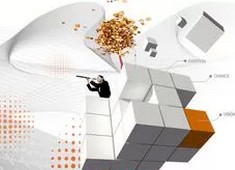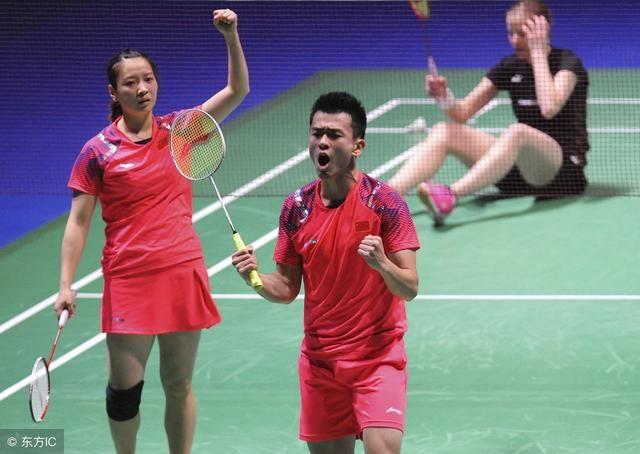欧洲杯冠军文案怎么写英语
The UEFA European Championship, often referred to as the Euros, is one of the most prestigious tournaments in international football. Every four years, the best national teams in Europe compete for the coveted title of European Champion. The journey to this title is filled with passion, drama, and unforgettable moments. In this article, we will explore the key questions surrounding the European Championship and delve into the factors that contribute to a team’s success in this tournament.
What Makes a Team a Contender for the European Championship?
One of the first questions that come to mind when discussing the European Championship is what makes a team a serious contender for the title. Several factors play a crucial role in determining a team’s chances of lifting the trophy.
1. Strong Squad Depth
A deep and talented squad is essential for any team aiming for European Championship glory. The tournament’s format, which involves multiple matches over a short period, requires teams to have a strong bench. Injuries and fatigue can be significant factors, and having capable replacements can make all the difference. Teams like France and Germany, with their wealth of talent, are often seen as favorites due to their squad depth.
2. Experienced Coaching Staff
The role of the coaching staff cannot be overstated. Experienced managers who have been through the highs and lows of international football can provide the tactical acumen and psychological support needed to navigate the tournament’s challenges. Coaches like Roberto Mancini of Italy and Didier Deschamps of France have demonstrated their ability to lead their teams to success in the Euros.
3. Team Chemistry
Team chemistry is another critical factor. A group of talented individuals does not always guarantee success if they cannot work together as a cohesive unit. The best teams in the Euros often have a strong sense of camaraderie and understanding among their players. This chemistry can be the deciding factor in tight matches and crucial moments.
How Does the Tournament Format Influence the Outcome?
The format of the European Championship has evolved over the years, and understanding how it works is essential for predicting the outcome.
1. Group Stage
The tournament begins with a group stage, where teams are divided into groups of four. Each team plays three matches, and the top two teams from each group advance to the knockout stage. The group stage is a test of consistency and resilience, as teams must balance the need to win with the risk of injuries and fatigue.
2. Knockout Stage
The knockout stage is where the drama truly unfolds. Teams face a single-elimination format, meaning one loss can end their journey. This stage requires teams to be at their best, both physically and mentally. The pressure is immense, and the ability to handle it can separate the champions from the rest.
3. Home Advantage
In recent editions of the Euros, the tournament has been hosted by multiple countries, creating a unique dynamic. Home advantage can be a significant factor, as seen in the 2020 (2021) tournament, where Italy’s passionate fans played a crucial role in their success. However, the absence of a single host nation can also level the playing field, making it more challenging to predict the outcome.
What Role Do Key Players Play in a Team’s Success?
Key players can be the difference between winning and losing in the European Championship. These players often have the ability to turn a match with a moment of brilliance or a crucial goal.
1. Goalkeepers

A reliable goalkeeper is often the backbone of a successful team. In high-stakes matches, a goalkeeper’s ability to make crucial saves can be the difference between victory and defeat. Examples include Gianluigi Buffon for Italy and Manuel Neuer for Germany, who have both played pivotal roles in their teams’ successes.
2. Defenders
Solid defense is essential in the Euros, where a single mistake can be costly. Defenders who can read the game, make timely interceptions, and organize the backline are invaluable. Players like Virgil van Dijk for the Netherlands and Sergio Ramos for Spain have demonstrated their importance in this role.
3. Midfielders
Midfielders are the engine room of any team. They control the tempo of the game, create chances, and break down the opposition’s play. Players like Andrea Pirlo for Italy and Luka Modric for Croatia have been instrumental in their teams’ success in the Euros.
4. Forwards
The role of forwards is to score goals, and in the Euros, a prolific striker can be the difference between winning and losing. Players like Cristiano Ronaldo for Portugal and Zlatan Ibrahimovic for Sweden have shown their ability to deliver in crucial moments.
How Do Tactics and Strategy Influence the Outcome?
Tactics and strategy play a significant role in the European Championship. Coaches must adapt their strategies to the strengths and weaknesses of their opponents, as well as the demands of the tournament format.
1. Flexible Tactics
A flexible tactical approach is essential. Coaches must be able to switch formations and strategies depending on the opponent and the match situation. Teams that can adapt quickly and effectively are often more successful in the Euros.
2. Set-Piece Mastery
Set-pieces, including free-kicks and corners, can be decisive in tight matches. Teams that excel in these areas can create scoring opportunities and defend against the opposition’s attacks. Mastery of set-pieces can be a game-changer in the Euros.
3. Pressing and Counter-Pressing
The ability to press high up the pitch and counter-press when possession is lost can disrupt the opposition’s play and create scoring opportunities. Teams that excel in these areas can dominate matches and control the tempo.
Conclusion

The journey to European Championship glory is a complex and challenging one, requiring a combination of talent, strategy, and resilience. Teams that can navigate the tournament’s demands and capitalize on their strengths are often the ones that lift the trophy. As we look forward to future editions of the Euros, we can expect more thrilling moments, unexpected upsets, and unforgettable performances from the best teams in Europe.
欧洲杯直播
MORE>-
10-30欧洲杯预选赛怎么改时间了
-
10-30为什么欧洲杯越位慢了
-
10-30欧洲杯是怎么算的奖金(欧洲杯是怎么组成的呢图片)
-
10-30欧洲杯如何对阵曼联比赛
-
10-30本届欧洲杯有哪些明星
-
10-302024欧洲杯是什么时候举行
-
10-30欧洲杯过关方式怎么选
-
10-30今晚欧洲杯是哪个球队比赛(今晚欧洲杯是哪个队比赛)
-
10-30c罗欧洲杯预赛赛程表最新
-
10-302024欧洲杯淘汰赛(2024欧洲杯淘汰赛分组规则)
-
10-29欧洲杯现场多少英格兰球迷(欧洲杯现场容纳多少人参加)
-
10-29欧洲杯没点球吗为什么不进(欧洲杯没烟抽会怎么样)
-
10-29欧洲杯世预赛足球
-
10-29欧洲杯法国队如何看待(欧洲杯法国队如何进世界杯)
-
10-29欧洲杯有多少收入
-

2024今晚香港开特马开什么六期,答案解析解释落实掌握天下事_中级版33.291
在2024年的香港特马开奖活动中,众多彩民和观众都在关注着每一期...
-

2024年新澳门王中王资料,答案解析解释落实掌握天下事_3D6.3
在信息爆炸的时代,掌握最新的资讯成为了每个人不可或缺的能力。20...
-

最准一肖一码100%中,答案解析解释落实掌握天下事_辅助版2.11
在博弈领域,”最准一肖一码100%中”这一说...
-

黄雅琼黄凯祥分手事件解析
黄雅琼和黄凯祥是一对知名的明星情侣,他们的分手事件引起了广泛关注。在...
-

最准一肖一码100%香港78期,答案解析解释落实掌握天下事_平台版8.52
在当今信息爆炸的时代,人们对于获取准确信息的需求日益增长。特别是在博...
- 搜索
- 最近发表
-
- 台湾18所公立新赛季蓝鲸体育APP高中减招 私校艰难寻出路
- 世预赛亚洲区18强赛今晚客场对阵巴林队 国足缺兵少将如何破局拿分?
- “奥运冠军之城”,烟台实至名归!
- 体育总局办公厅关于征求《一体化政务服务平台电子证照 运动员技术等级称号证书》(征求意见稿)意见的通知
- 采“珠”忙!海南代表队全力备战运动会
- 足协杯决赛门票15日开售,克雷桑已随队正常训练
- 国家又一项重大冰雪活动落地呼伦贝尔
- 北京市高等教育学会统战工作分会正官方彩票都是什么彩种式改组成立
- 三部门:严格规范校外培训机构管理,线上培训机构每课时不超过30分钟
- 成都市第十五届运动会闭幕
- 全国开奖公告结果
- 2023新澳门原料大全
- 贵州红·山水越野挑战赛(六盘水·盘州站)新闻发布会召开
- 第四届中国广电媒体融合发展大会在京开幕,探讨媒体融合创新路径
- 我国人工智能组天牛版图库织机构数量近190万户 东南沿海地区尤为集中
- 从举重到网球:揭开2024体育赛事的热情盛宴
- 想去上海体博会逛一逛?观众注册正式开启!
- 如何抓牢幼儿园和小学近视防控关键阶段防控工作?来看3部门这8项部署
- 四明山上,千人激情奔跑
- 2024年广交院晶通杯校友足球邀请赛圆满落幕
- 标签列表
-
- 2024年欧洲杯主办国 (17)
- 2024欧洲杯比赛时间 (20)
- 欧洲杯参赛球队有几支 (9)
- 2024欧洲杯百度百科 (21)
- 2024欧洲杯杯 (9)
- 2024年欧洲杯预选赛 (14)
- 2024年欧洲杯开幕时间 (10)
- 2024欧洲杯完整赛程表 (10)
- 2024欧洲杯主办城市 (17)
- 欧洲杯为什么没有中国 (13)
- 在哪里可以看欧洲杯预选赛 (11)
- 2024欧洲杯预选赛 (11)
- 欧洲杯在哪个国家举行2024 (12)
- 2024欧洲杯全部赛程 (10)
- 欧洲杯为什么没有直播 (15)
- 欧洲杯一共多少球队 (13)
- 欧洲杯历届冠军一览表 (10)
- 欧洲杯 (14)
- 欧洲杯赛程 (11)
- 直播吧官网 (10)
- 足球即时完整比分 (12)
- 2022年世界杯 (12)
- 直播8 (10)
- 直播吧 (21)
- 直播软件 (10)
